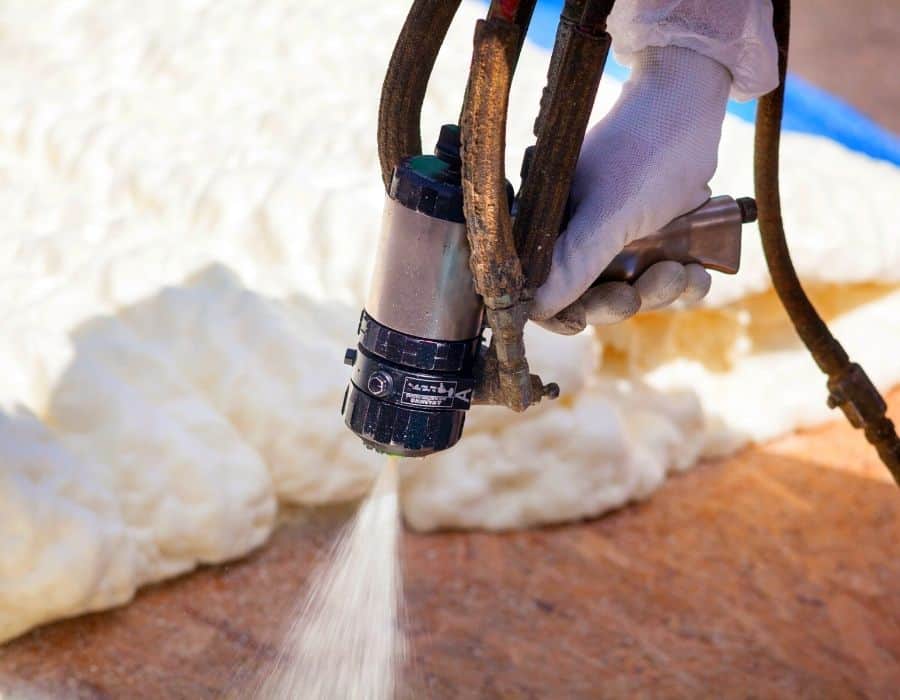How to Soundproof a Condo
Have you ever think of how to soundproof a condo? It’s ten o’clock. You’ve had a long day at work and simply want to relax. You wash, brush your teeth, put on your pajamas, and go to your bed. Your eyes are about to shut. It quietens down. Then you hear your noisy neighbor giggling at her late-night comedy program at maximum volume.
On another side of the wall, your neighbor has a baby who is in desperate need of milk. You can hear your upstairs neighbor dancing and stomping to the beat. You’re angry. Who wouldn’t be?! You must find a solution or you will never be able to sleep well.

Whether you live in an apartment or a dorm room, living in this type of home might be infuriating if you have inconsiderable neighbors! If you want to know how to soundproof a condo, read below the compiled techniques we prepared for you.
Why Should You Soundproof Your Condo?
You may notice the sound of your neighbors’ voices or footsteps through the walls if you live in a condo. When something vibrates, the sound is produced, and it must pass through objects, liquids, or air to enter your ear. When it flows through a wall, for instance, it vibrates the wall as it passes through. The air is then vibrated till it enters your ear.
Hearing some noise across shared walls is typical. However, soundproofing is required if you can plainly hear your neighbors just talking about dinner on the other side of the wall.
In condo units, airborne sound insulation for walls and floors should have a sound transmission class (STC) rating of 45, according to the International Code Council (official website). The STC rating is a measurement of a material’s capacity to decrease sound transmission. The greater the STC, the better at stopping sound transmission material is.
What Should Be Soundproofed?
Isn’t it wonderful to live in a soundproof condo? It’s also in your grasp. The first step in fixing condo noise issues is to pinpoint the source of the noise. Here’s a simple two-step method for determining which areas require soundproofing:
| Step 1 | The first step is to figure out what sounds you’re hearing. Is that your next-door neighbor’s voice? Is it the television? Is it because of the traffic on the highway? |
| Step 2 | Determine the source of the noise. Is it from the same room or condo as you, or from a different room or unit? Do you hear a dog barking next door or a dog barking a few homes away, for example? |
The floor or ceiling are the most common sources of noise for condo occupants. You may hear your upstairs neighbors going about, closing doors and cabinets, and flushing the toilet.
So, How to Soundproof a Condo?
Here are some helpful techniques for reducing noise both outside and within your flat, so you can turn up the music without disturbing your neighbors and not be disturbed by them.
1. Seal Your Door
One of the most significant sources of noise enters your home through your front door. Through tiny holes around the door’s border, noise from busy hallways makes its way into your condo. If you don’t have a solid, heavy door, which is unlikely because most condo doors are hollow to save money, noise can also reverberate through the door’s core.
Replace your hollow door with a solid, heavy-set door if possible. If that isn’t an option or isn’t authorized, your best solution is to buy an acoustic door seal kit and install it on your existing door. These close the holes around the door’s edge, preventing noise transmission.
If you don’t want to spend the money on a sealing kit, pipe insulation foam can be applied at the base of the door instead. You can achieve a great noise-canceling seal by combining this with some weatherproofing strips.
Video: How to Soundproof a Door (6 Best & Easy DIY Ways)
2. Soundproofing the Walls
| A. Add Sound Barrier | Although acoustic barriers are the most obvious option for soundproofing your condo, they are also going to be the most expensive. Installing dedicated soundproofing technology can be costly, and it may also need modifying the construction of your condo. Check with your landlord first if this is the case. |
| B. Increase the Amount of Drywall | Adding additional mass to a condo wall is one of the easiest ways to soundproof it. The more solid a wall is, the more difficult it is for sound to get through. Because drywall is affordable and easy to obtain, this will also be one of the most cost-effective options. Denser materials should also be considered, although they can be heavy, costly, and difficult to install. Furthermore, vibrations will still be able to pass through the wall, thus it will not be fully effective. |
| C. Make Use of Decoupling | Decoupling may appear to be a difficult procedure, but it is actually very easy. It entails dividing two portions of the wall in order to make sound transmission more difficult. Installing a new layer of drywall but leaving a space between it and the original is the easiest method to achieve this. This page explains decoupling in detail. Filling the space between the walls with insulating foam will offer another layer for the sound to pass through, making it even more effective. |
| D. Install Damping | By adding a thick and absorbent substance to your walls, you may limit the number of vibrations that can pass through them. This may be done using insulating foam put in the wall cavity or with a solution like Green Glue. This works wonders at dampening sound waves via thin walls. |
| E. Use Audio Blankets | Soundproofing the condominium walls with acoustic blankets or noise-reducing curtains is a more versatile option. For soundproofing, just put them over the unit’s walls or windows. Quilted fiberglass (like the one used in french doors) is commonly used in them because it aids with soundproofing. Soundproofing the apartment with audio blankets is a wonderful idea. These, however, might be a costly choice. They’re also not particularly attractive. As a result, you’ll need something additional to position in front of them or hang something attractive to cover it up to keep the condo’s aesthetics. |
Video: Sound Proofing Wall – Green Glue & Double Drywall
3. Install the Right Wood or Carpet on the Floor
If you live in a condo on the second or third level, be sure that the noise from your unit does not leak through to the unit below you. Noise is one of the most common reasons for conflict in condominiums. Despite the fact that noise might be a legal concern, most condo managers will take the appropriate steps to remedy noise issues. Avoid having your neighbors knock on your door to tell you that they heard your loud music.
A variety of wood and carpet underlay choices are available to minimize the sound of footsteps, televisions, audio systems, and musical instruments (like drums). Consider hardwood, wood laminate, or tile as a flooring option for your apartment design. These materials work well as soundproofing. The noise impact from your unit can also be substantially reduced by laying a thick carpet.
Related: How to Make a Noise Complaint
4. Consider Ceiling Insulation Made of Fiberglass
Your condo living room may be a fantastic location to play music, but the volume may be excessive. The noise quickly travels up the wall and irritates your neighbor. The amount of noise that escapes your ceiling is determined by the construction of your apartment. It’s possible that soundproofing your ceiling will necessitate a noise reduction plan. In this way, you can also prevent your upstairs neighbor from their units. Who wants to hear their feet stomping?!
To prevent noise from bouncing through the ceiling, you must first establish a space and then install a barrier. With fiberglass insulation, you may get the quietest results. Fiberglass insulation may be easier to deal with because it is a soft substance. Heavier materials, such as drywall, medium-density fiberboard, or vinyl sheeting, can also be used.
5. Seal the Windows
It’s essential to seal your windows if the noise pollution is coming from outside your condo. Consider installing window inserts to your window panes to seal any gaps and block outside noise. Blackout curtains are a more inexpensive and practical option; they not only muffle outside noise but also keep your room dark, which is a helpful feature for night workers who sleep during the day or for those who just prefer to sleep in on weekends.
Video: How To Soundproof A Window From Outside Noise And Noisy Neighbors
6. Add Bookshelves
Using heavy books on many bookshelves to form a sound barrier is a reasonably successful method. Shelves and books, when combined, provide a strong barrier through which sound has a hard time penetrating, thus acting as a second wall in your apartment. This is a wonderful option if your sound leakage is coming from a neighbor’s wall.
If you go with this option, purchase extra-tall bookcases and stuff them as full as you can. There are several unique bookshelves on the market, but for maximum sound absorption, a standard hardwood bookshelf is the best option.
7. Make Use of a White Noise Machine
White noise, while not technically soundproofing, is a continuous stream of broad-band noise signals. Simply said, white noise machines may block out other noises in your immediate area that might otherwise interfere with the noise level in your residence.
White noise machines distract your focus by concealing any distracting noise sources by producing a non-distracting kind of noise. However, not everyone loves the sound of white noise, and if you layer your TV or music on top of it, your apartment may get agitated.
Looking for the best white noise machine for your office? Click here to learn more.
Video: What Is White Noise?
In Conclusion
There are both permanent and temporary soundproofing options for your condos. However, it goes without saying that permanent solutions are far superior to temporary ones. This does not imply that the music and other background sounds are totally removed. These techniques, on the other hand, help in the cancellation of a significant amount of noise.
If you are renting a condo, it is best to use temporary measures because the landlord may not allow you to make permanent changes to his property. It is also critical to verify that the building’s acoustics are in good working order. If you want to do DIY soundproofing, that’s okay too! Just make sure to tune in here at Silence Wiki to learn more about your soundproofing needs.



